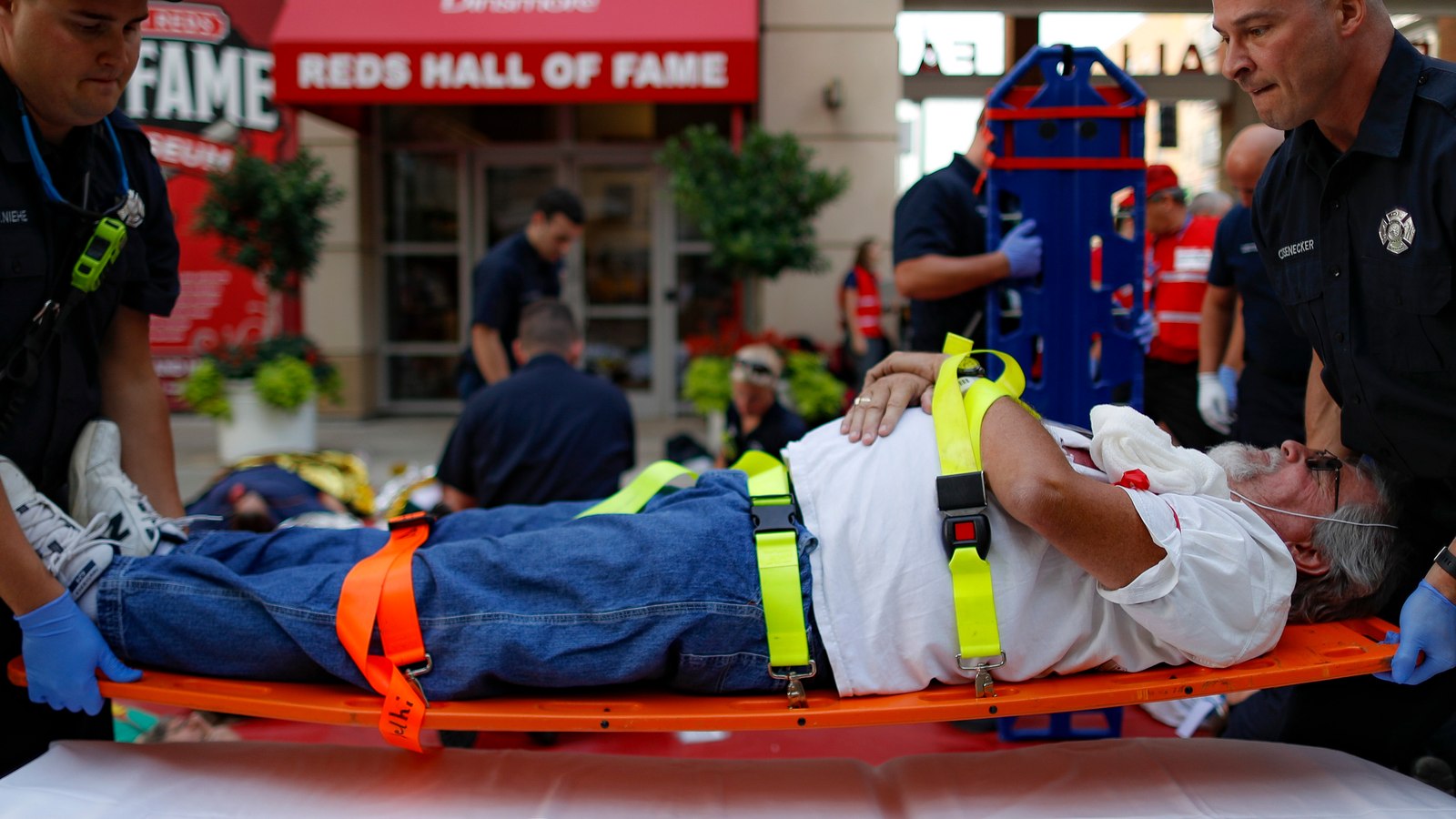The average person likely associates post-traumatic stress disorder (PTSD) with military service members. Indeed, veterans often dominate the conversation about PTSD because their experiences set them up at increased risk for developing the condition.
However, a person does not have to serve in the military to develop PTSD. Individuals can experience trauma when they get into a violent car crash, when they witness the death of another person, or when they experience violence. Some people can also suffer traumatic stress when they serve as the first point of contact for individuals going through a terrible trauma.
Firefighters, paramedics, and police officers are at increased risk for PTSD because of the violence and terrible accidents that they witness as part of their job. Correctional officers, emergency room nurses, and disaster response workers also face repeated traumatic exposures that may lead to long-term mental health conditions.
PTSD Can Stop a Professional From Doing Their Best Work
First responders need to stay calm and collected in emergencies, but PTSD can prevent them from doing so. PTSD manifests differently in different people. Some individuals may find that certain smells trigger their condition, while others respond to sounds, flashing lights, or environments similar to the one where they experienced trauma.
A firefighter with PTSD may hesitate to run into a burning building even though their job requires it. A police officer with PTSD from a violent standoff may be unable to remain calm when dealing with a similar situation in the future.
According to the DSM-5 (Diagnostic and Statistical Manual of Mental Disorders, Fifth Edition) published by the American Psychiatric Association, PTSD symptoms include intrusive thoughts, nightmares, flashbacks, avoidance behaviors, hyperarousal, hypervigilance, and emotional numbing. When severe, these symptoms may prevent an employee from reasonably fulfilling their job obligations or even put others at risk in high-stakes environments.
The National Institute of Mental Health estimates that about 6% of the U.S. population will experience PTSD in their lifetime. Among first responders, studies suggest the prevalence may range from 15% to 20%, which is significantly higher than in the general population. These numbers illustrate the occupational hazard that PTSD presents for those in emergency services.
In other words, PTSD is not just an emotional burden — it is a disabling condition that can directly interfere with workplace safety and performance.
California Acknowledges PTSD Risks for First Responders
Not every state allows workers who develop mental health conditions to seek workers’ compensation benefits without a prolonged legal battle. However, California leads the way on this issue.
Under Senate Bill 542 (SB 542), signed into law in 2019, PTSD that develops in the course of employment is presumed to be a work-related injury for certain first responders, including firefighters, police officers, and other peace officers. This presumption law makes it significantly easier for affected workers to qualify for benefits.
In 2021, California expanded these protections with Assembly Bill 1116 (AB 1116), which broadened eligibility and extended presumption periods for PTSD claims. These laws mean that, in California, PTSD among first responders is treated with the same seriousness as physical injuries such as broken bones or burns.
By contrast, other states may take a narrower view. For example, in Texas and Florida, PTSD claims often require strict proof that the trauma was extraordinary and not part of the normal course of duties. In New York, PTSD coverage may be limited unless the worker can show extreme circumstances. California’s legal approach sets a precedent that recognizes PTSD as a natural consequence of repeated exposure to traumatic events in emergency service work.
Workers’ Compensation and PTSD: What Benefits Are Available?
For eligible first responders, workers’ compensation can provide critical financial and medical support. Benefits may include coverage for therapy, counseling, psychiatric evaluations, and prescription medications. Temporary disability benefits may replace a portion of lost wages during recovery. In severe cases where PTSD prevents a return to emergency work, permanent disability benefits may be awarded.
Vocational rehabilitation is also available for individuals who are unable to continue in their original role safely and securely. For example, a paramedic unable to return to field duty due to PTSD might be retrained for a dispatch or administrative position. This ensures that affected professionals have opportunities to continue meaningful work while protecting their mental health.
The Process of Filing a PTSD Claim in California
Filing a PTSD workers’ compensation claim in California involves several steps. First, the worker must report the condition to their employer as soon as symptoms interfere with job performance. The employer is then required to provide a claim form. A medical evaluation follows, often conducted by a physician or mental health specialist qualified under California’s workers’ compensation system.
Because PTSD falls under the presumption laws of SB 542 and AB 1116, the burden of proof is shifted. Employers or insurers must demonstrate why the condition is not work-related to deny the claim. This reversal is critical, as traditional workers’ comp claims for mental health often faced delays and disputes over causation.
If a claim is denied, workers can appeal through the Workers’ Compensation Appeals Board (WCAB). In such cases, legal representation is often necessary to gather medical records, expert testimony, and evidence of duty-related trauma.
Overcoming Stigma and Seeking Support
One of the biggest barriers to PTSD recovery is stigma. Many professionals fear being seen as unfit if they disclose trauma-related struggles. California’s presumption law helps combat stigma by recognizing PTSD as a legitimate occupational hazard.
Treatment options may include Cognitive Behavioral Therapy (CBT), Eye Movement Desensitization and Reprocessing (EMDR), group counseling, and medication management. Many agencies also offer Employee Assistance Programs (EAPs) and peer-support groups, providing a safe space for first responders to openly discuss their experiences.
Early intervention often leads to better outcomes, reducing both personal suffering and workplace risk.
Frequently Asked Questions (FAQs)
Can first responders get workers’ comp for PTSD in California?
Yes. Under SB 542 and AB 1116, PTSD is presumed to be work-related for eligible first responders, making it easier to qualify for benefits.
What symptoms of PTSD qualify for workers’ comp?
Symptoms such as flashbacks, intrusive thoughts, nightmares, hypervigilance, avoidance behaviors, and emotional numbing can qualify if they interfere with job duties.
Do other states offer workers’ comp for PTSD?
Some do, but California’s presumption laws are among the strongest in the country. In many states, workers must still prove an extraordinary event caused the PTSD.
What happens if my PTSD workers’ comp claim is denied?
You can appeal through the Workers’ Compensation Appeals Board (WCAB). An experienced attorney can help challenge the denial and present medical evidence.
How long does it take to resolve a PTSD workers’ comp case?
Timelines vary. Some claims are resolved quickly under presumption laws, while appeals can extend the process. Legal support often accelerates outcomes.
If you are a firefighter, police officer, paramedic, or another first responder struggling with PTSD symptoms, you should know that California law is on your side. Workers’ compensation benefits exist to help you recover and return to a stable quality of life.
At Hussain & Gutierrez, we help first responders and other workers secure the benefits they are entitled to under California law. If PTSD or another work-related mental health condition is keeping you from doing your best work, contact us today for a confidential consultation.



